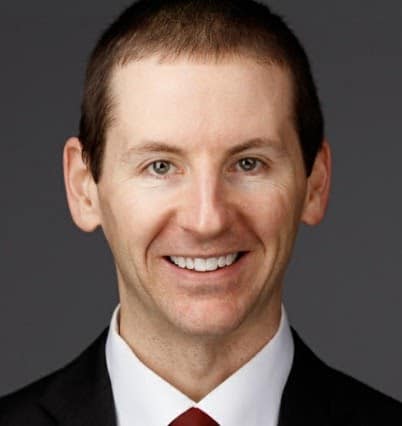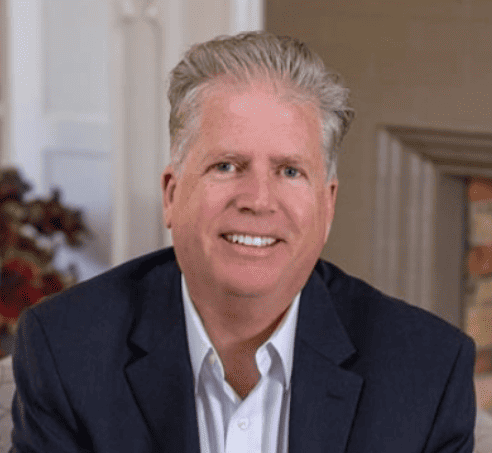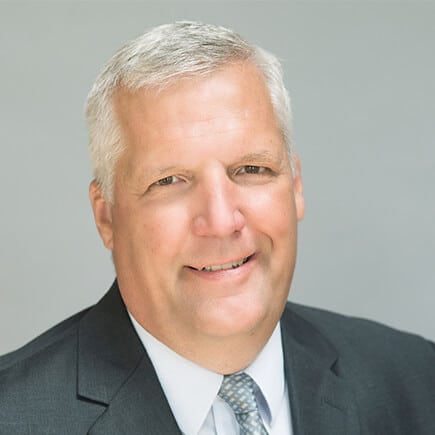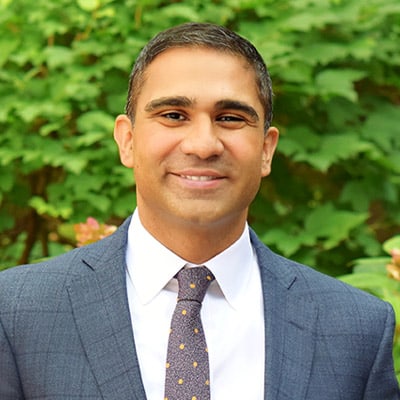
Is Edward Jones a fiduciary? Unfortunately, the question isn’t as simple as yes or no. Rather, the answer is it depends.
Choosing a financial advisor who will place your interests ahead of their own is top of mind these days amid changing regulations surrounding suitability versus acting as a fiduciary. Edward Jones, one of the nation’s largest financial services firms with a network of more than 15,000 branch locations and nearly 20,000 advisors, is sometimes caught in this heated debate in the wealth management community.
Table of contents
- What Is the fiduciary standard? How’s it different from suitability?
- Edward Jones & the fiduciary standard
- An example where Edward Jones acts as a fiduciary
- CFP & CFA financial advisors at Edward Jones are held to a higher standard
- Questions to ask financial advisors about acting as a fiduciary
- Trust but verify
- There should be no compromising your financial future
- Find Your Next Financial Advisor on Wealthtender
- Answers to Reader Questions
What Is the fiduciary standard? How’s it different from suitability?
For background, the fiduciary standard is outlined in the Investment Advisors Act of 1940, which governs the activity of registered investment advisors (RIAs) under the regulatory oversight of the Securities and Exchange Commission (SEC). It states that an advisor (RIA) must put their clients’ interests ahead of their own. It mandates the advisor follows the best course of action for the client regardless of how the advisor is affected. Many financial advisors not affiliated with a national firm, like Edward Jones, are RIAs regulated solely by the SEC and are always held to the fiduciary standard.
Suitability, on the other hand, outlines that a brokerage firm and its financial advisors must have a reasonable basis to believe a recommended transaction or investment strategy is appropriate for a customer, according to FINRA, the self-regulatory organization for broker-dealers.
Firms like Edward Jones (and other national wealth managers like Merril Lynch, Ameriprise, etc.) offer a diverse range of products and services, subjecting the firms and their advisors to regulation as both an RIA and broker-dealer. Depending upon the particular product or service an Edward Jones advisor is discussing with their client, the applicable regulations and fiduciary vs. suitability standards can vary.
More recently, in 2019, the SEC adopted “Regulation Best Interest” (Regulation BI) in an effort to reduce the disparity between the standards for investment advisors and brokers regulated by the SEC and FINRA, respectively. Regulation BI establishes a “best interest” standard of conduct for broker-dealers and associated persons when they make a recommendation to a retail customer of any securities transaction or investment strategy involving securities, including recommendations of types of accounts.
While many industry pundits view Regulation BI as a step in the right direction toward holding all financial advisors to a consistent fiduciary standard, critics suggest until a true uniform fiduciary standard exists, consumers should seek out advisors regulated as a fiduciary by the SEC or an advisor held to a fiduciary standard under the professional credentials they hold (e.g., Certified Financial Planner designation).
Edward Jones & the fiduciary standard
Is Edward Jones a fiduciary? It depends. Some parts of the St. Louis-based financial services firm’s business talk about putting the client’s interest first, while other parts, more at the advisor/client retail level, might have conflicts of interest that wouldn’t exist or could be greatly diminished if acting in a fiduciary capacity.
Specifically, the Edward Jones website states: “When we do business with you, the firm and our financial advisors benefit from fees, commissions, and other payments from you and our investment providers. These financial incentives may create a conflict between Edward Jones’ interest, your financial advisor’s interest, and your own.”
So, the answer here is a “no” with respect to how many of the company’s advisors handle client assets at the brokerage level. Of course, when clients request their advisor buy or sell a stock based on their own research and not the advisor’s recommendation, it’s natural in this scenario that the advisor is facilitating the request without regard to acting as a fiduciary. Though, a reputable advisor will strongly discourage their clients from making certain transactions they believe could be harmful to their financial health.
A note about conflicts of interest and transparency: It’s important to note that no matter how a financial advisor is regulated, conflicts of interest will always exist. At a minimum, these conflicts should be transparently disclosed to clients. Edward Jones deserves credit for its plainspoken disclosures, easily found on its website.
An example where Edward Jones acts as a fiduciary
At the institutional plan level, Edward Jones explicitly states there is a fiduciary standard that advisors in the space must adhere to: “For this fee, Edward Jones will serve as an investment advice fiduciary at the plan level, and provide educational services at both the plan and participant level, if applicable.” (View PDF Disclosure on the Edward Jones website)
CFP & CFA financial advisors at Edward Jones are held to a higher standard
What helps to cut through the noise, though, is that those advisors who have earned the Certified Financial Planner (CFP) designation, as well as the Chartered Financial Analyst (CFA) designation, are required to uphold the fiduciary standard. Individual investors can have confidence knowing that advisors with those industry designations are not only bound to whatever requirements are outlined at the advisors’ place of employment but also an industry code of ethics, which includes acting as fiduciaries.
As a result, if you’re thinking about hiring an Edward Jones advisor, you should consider prioritizing working with advisors who have earned their CFP or CFA credentials. It’s not to say that financial advisors lacking these credentials are inferior, but erring on the side of caution, selecting only wealth managers beholden to putting client interests ahead of their own helps increase your odds of receiving fiduciary advice and guidance.
Questions to ask financial advisors about acting as a fiduciary
If you’re like most Americans, it can feel overwhelming to distinguish between the suitability rule and fiduciary standard when preparing to hire a financial advisor. Here are a few questions to ask when hiring an advisor at Edward Jones to better understand if they are a good fit to work with you:
- Can you describe when you are acting as a fiduciary and when you are not?
- Why are you not a fiduciary in some instances?
- What are all the ways you make money?
- Can you describe all the costs I will pay you and your firm?
- Are you a CFP professional or CFA charterholder?
- What are the most important aspects of investments and building, or maintaining, long-term wealth?
- What role does insurance play in a financial plan?
An advisor’s answer to these questions will reveal why the advisor is in the business. You want to get a sense that they are working for you and that your success is their success. Beyond that, though, you want to ensure that the advisor’s goal is to strictly help you regardless of how they or their firm is impacted.
Trust but verify
Edward Jones is a respected financial services industry stalwart. While some of the company’s advisors are not bound to the fiduciary standard when handling client assets, they likely still put client interests first. Part of what has sustained Edward Jones as a leading retail asset manager is the relationships formed at the local level between individuals and financial professionals.
Still, today’s investors must trust but verify. Not to cast an ominous shadow on Edward Jones advisors, but it’s not uncommon for some so-called advisors to be in the business simply to sell commission-based products to whoever might buy them. You cannot take that risk.
To that point, there was a 2019 skirmish between the CFP Board and Edward Jones concerning the Board’s revised professional standards of ethics and conduct. A new, stronger fiduciary duty outlined by the CFP Board caused nearly 2,000 CFP professionals at Edward Jones to ask the Board if they could continue using the CFP marks since the firm does not act as a fiduciary at the brokerage level. As it stands today, Edward Jones encourages individuals to check an advisor’s credentials, including the CFP designation.
There should be no compromising your financial future
Regardless of what wealth managers you choose, going with an advisor who charges reasonable fees with a strong service offering is ideal. It’s even fine to select one with relatively high costs if your planning needs are complex.
For basic investment management, however, paying more than, say, 1% per year in fees by assets is considered high. Investors can also look for hourly advisors or flat-fee financial planners based on their needs and circumstances.
Edward Jones’ fee structure includes asset-based fees, portfolio program fees, and even trade commissions. That’s a relatively complicated and potentially expensive set of costs to weigh against the benefits received.
The Bottom Line
Advisors at Edward Jones are not bound to the fiduciary standard at the brokerage level. The firm’s advisors working with institutional plans are, though. Edward Jones advisors who have earned the right to use the CFP or CFA marks are required to act as fiduciaries. All investors should carefully assess the value they receive for financial planning services compared to the costs. Ensuring your advisor puts your interests ahead of theirs is critical.
Find Your Next Financial Advisor on Wealthtender
📍 Click on a pin in the map view below for a preview of financial advisors who can help you reach your money goals with a personalized plan. Or choose the grid view to search our directory of financial advisors with additional filtering options.
📍Double-click or pinch pins to view more.
Answers to Reader Questions
Are All Fiduciary Financial Advisors “Fee Only”?
Not all fiduciary financial advisors hold themselves out to be “fee only” financial advisors. While a fiduciary financial advisor does not need to be “fee only”, many advisors choose to exclusively earn income from fees, and not commissions, based on a belief that the “fee only” method of compensation is the most transparent and objective method available.
NAPFA, an organization of financial advisors that requires its members only work with a “fee only” structure states it this way:
NAPFA’s position is that the Fee-Only method of compensation is the most transparent and objective method available. This model minimizes conflicts and ensures that your financial planner acts as a fiduciary. Fee-Only planners are compensated directly by their clients for advice, plan implementation and for the ongoing management of assets. All NAPFA members are required to work only within the Fee-Only structure, accepting no commissions for their work.
Fee-Only financial advisors may be paid hourly, as a retainer, as a percentage of assets (AUM), or as a flat fee, depending upon the planner you choose.

About the Author
Mike Zaccardi, CFA®
Mike is a freelance writer for financial advisors and investment firms. He’s a CFA® charterholder and Chartered Market Technician®, and has passed the coursework for the Certified Financial Planner program.
Learn More About Mike






























